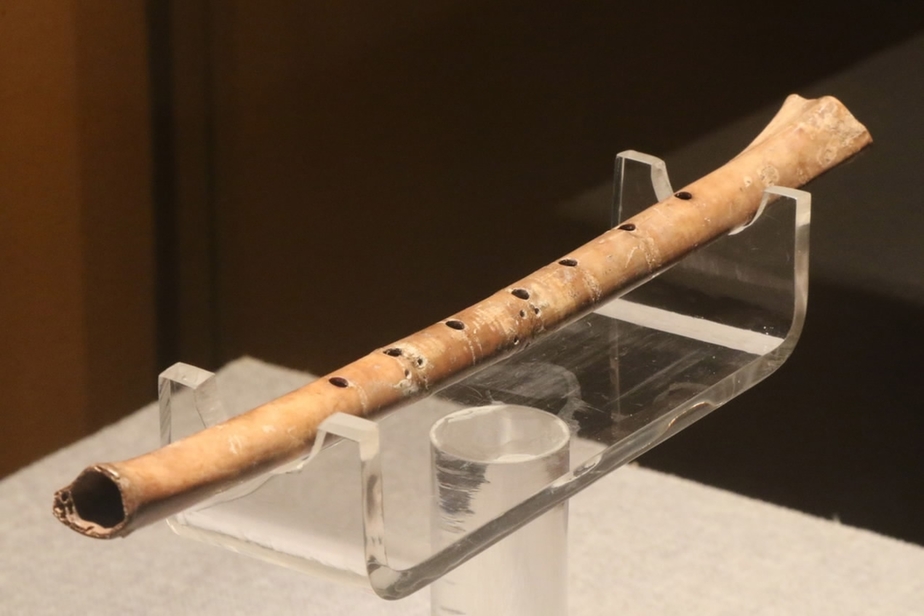If Treasures Could Talk: What would China's Jia Hu Bone Flute say?
Nine thousand years ago, a crane died. The carcass was collected by some villagers. Seeing this, the nearby cranes began to wail mournfully.
The villagers extracted the dead crane’s wing bone, and carved it into a basic musical instrument. The finger holes are uneven, and the carving around the mouthpiece is a little careless. But this simple instrument, the fruit of ancient creativity has been continuously improved upon, and has evolved into the sophisticated flute we know today.

Musician Ding Xiaokui owns a duplicate of the crane bone flute. The original, made between 7,800 and 9,000 years ago, was unearthed at the Jiahu Neolithic Site in central China's Henan Province. It was one of more than 20 such flutes found there in 1986 and 1987. They are the oldest musical instruments ever discovered in China.
The first bone flutes may have been used by hunters to mimic a bird’s cry. Later, they may have provided music for celebrating a successful hunt. With time, as their aesthetic appreciation became more developed, people may have demanded more complex music.
At Jiahu, the development from the older five-holed flutes to the later flutes with seven or eight holes, reveals how civilization progressed.
There used to be a widespread belief that traditional Chinese music had only five tones. The seven-tone scale, it was thought, was introduced from abroad. But the seven-holed bone flutes found at Jiahu have changed our understanding of the history of China's ancient music.
For the Neolithic hunters, finding the best places to drill holes in the unevenly-shaped crane bones, was a matter of trial and error. Today, however, the finest flute makers still use the traditional technique.
In the course of 9,000 years, the family of bone flutes has expanded to embrace other materials, including bamboo.
Ding Xiaokui is one of several Chinese musicians who use this ancient instrument to express modern sensibilities.
Yet the sound of a Jiahu flute inevitably carries an echo of history. The air blown through it will always be the 9,000-year-old breath of our ancestors. This is the primordial sound of civilization -- moving air and moving hearts.
You have more new messages waiting.(Source:CGTN)











More From Guangming Online
Medics from Fujian leave for Shanghai to aid in battle against COVID-19 resurgence
New int'l land-sea transport service to Indo-China Peninsula launched
Another makeshift hospital under construction in Shanghai
Tourists view tulips in Suiping County, Henan
In pics: blooming gagea flowers on grassland in Zhaosu, Xinjiang
Greek workers stage 24-hour general strike over high prices